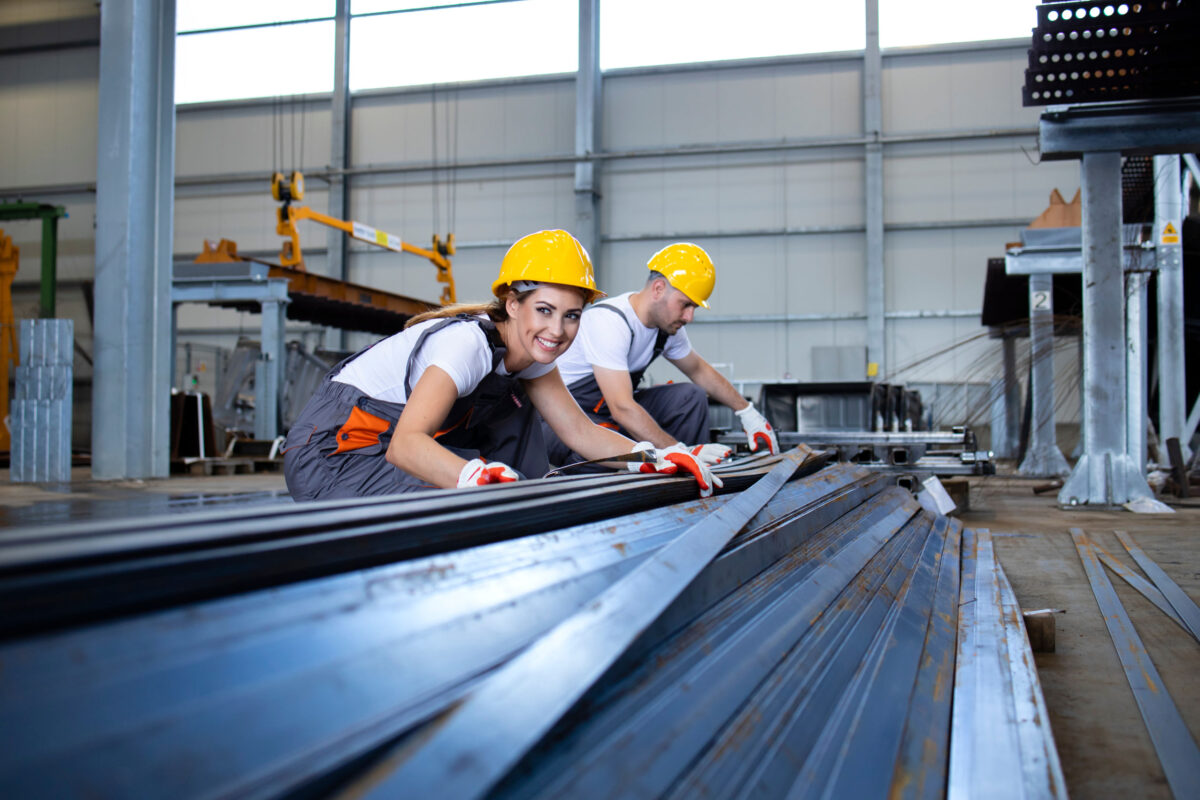Are you fascinated by the intricate process of transforming metal sheets into various structures? This blog will explore the fundamental processes, elements, advantages, and applications of sheet metal manufacturing. This guide will offer insightful information into this important business if you are searching for sheet metal fabrication services. Let us get started by understanding what sheet metal fabrication is.
Understanding Sheet Metal Fabrication
It transforms flat metal sheets, such as steel, aluminium, or copper, into various shapes and structures. This intricate process involves cutting, bending, and assembling techniques. Sheet metal fabrication companies provide services to the automotive, aerospace, construction, and electronics industries.
Now that you have come to know its meaning let us look at its basic processes.
The Basic Processes Of Sheet Metal Fabrication
a. Cutting
Cutting is the initial step in shaping raw metal sheet. Advanced laser, plasma, and waterjet cutting technologies offer precision and versatility, allowing for intricate designs and complex shapes. These services utilise cutting techniques to transform metal sheets into desired dimensions.
b. Bending
Bending shapes metal by applying force to deform it along a straight axis. Brake presses and bending machines are used to achieve accurate angles and curves. Skilled craftsmen in companies ensure precise bending for creating 3D structures from flat sheets.
c. Forming
Forming takes bending a step further by using specialised tools and machinery to create complex shapes like cylinders, cones, or irregular geometries. Skilled professionals in the sheet metal fabrication industry utilise their expertise to achieve desired designs precisely and adhere to specifications.
d. Assembling
After cutting, bending, and forming, the individual metal components are assembled into the final product. Sheet metal fabrication services employ various methods such as welding, riveting, soldering, adhesive bonding, and fasteners to join the components securely.
A wide range of materials can be utilised; let us have a look.
Types Of Sheet Metal Materials
Sheet metal fabrication companies work with various materials, each offering unique properties and advantages:
a. Steel
Due to its strength, longevity, and affordability, steel is the most frequently utilised material in sheet metal manufacturing. Different steel grades are designed for particular needs, making it a popular option across many sectors.
b. Aluminum
Aluminum is valued for its lightweight nature and corrosion resistance. It finds extensive use in the aerospace and automotive industries, where weight reduction is critical for improved efficiency.
c. Copper
Copper is frequently utilised in electrical and electronic applications because of its great electrical conductivity. Additionally, its aesthetic appeal makes it popular in architectural projects.
d. Stainless Steel
It is quite appropriate for all numerous types of usage, including food processing, medical equipment, and architectural applications. All this is because of its resistance to corrosion and hygienic qualities.
Now let us have a quick look at its advantages.
Advantages Of Sheet Metal Fabrication
Sheet metal fabrication provides several advantages that make it a preferred choice for manufacturing metal components:
a. Cost-Effectiveness
Sheet metal fabrication optimises raw material usage, minimising waste and saving time and money. Sheet metal fabrication companies employ efficient cutting techniques to maximise material utilisation.
b. Versatility
Sheet metals can be formed into a wide range of designs and shapes. From simple brackets to intricate architectural facades, sheet metal fabrication allows diverse applications and design possibilities.
c. Strength And Durability
The components are known for their strength and durability. Proper design and material selection ensure that these parts can withstand demanding conditions, providing long-lasting performance.
d. Quick Turnaround
With advanced technologies and efficient processes,fabrication services offer fast production and short lead times. This enables manufacturers to meet tight deadlines and fulfil customer demands promptly.
e. Customisability
This allows for customisation to meet specific requirements. Whether adapting to unique dimensions or incorporating intricate designs, the process offers flexibility and tailor-made solutions.
Now that you have learned about its advantages, it’s time to look at its applications.
Applications Of Sheet Metal Fabrication
Sheet metal fabrication finds applications in various industries:
a. Automotive
This is vital in the automotive industry, manufacturing essential components like car body panels, chassis, and engine components.
b. Aerospace
The aerospace sector relies on sheet metal fabrication for aircraft structures, including fuselages, wings, and interior parts. The lightweight nature of aluminium makes it the perfect material for various uses.
c. Electronics
This is vital for producing electronic enclosures, racks, and cabinets, providing protection and organisation for sensitive electronic equipment.
d. Construction
This is used for architectural elements, including roofing, cladding, and decorative facades. It offers durability and aesthetic appeal in construction projects.
e. Energy
From power generation to renewable energy sectors, sheet metal fabrication is integral in producing components such as solar panels, wind turbine parts, and electrical enclosures.
Summing Up
Sheet metal fabrication is a complex and essential process in the manufacturing industry. If you are interested in the industry, understanding the basic methods, materials, advantages, and applications is crucial. You can gain knowledge and experience from a reputable sheet metal fabrication firm in converting raw metal sheets into high-quality components.
Automotive, aerospace, construction, and electronics are just a few companies favour sheet metal fabrication because of their adaptability, affordability, and customisability. So, you’ll have a greater understanding of the creativity and quality of sheet metal production the next time you see a sleek automobile body or a precisely bent metal structure.

